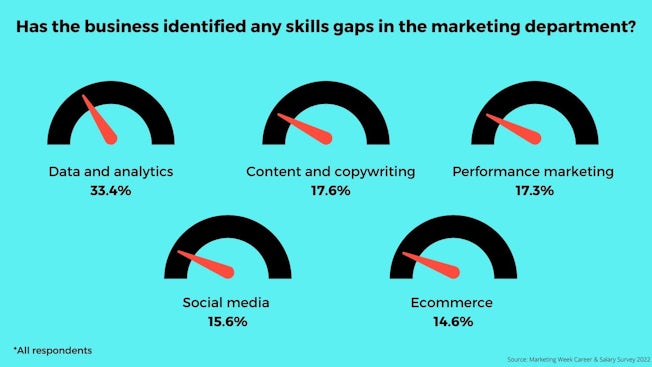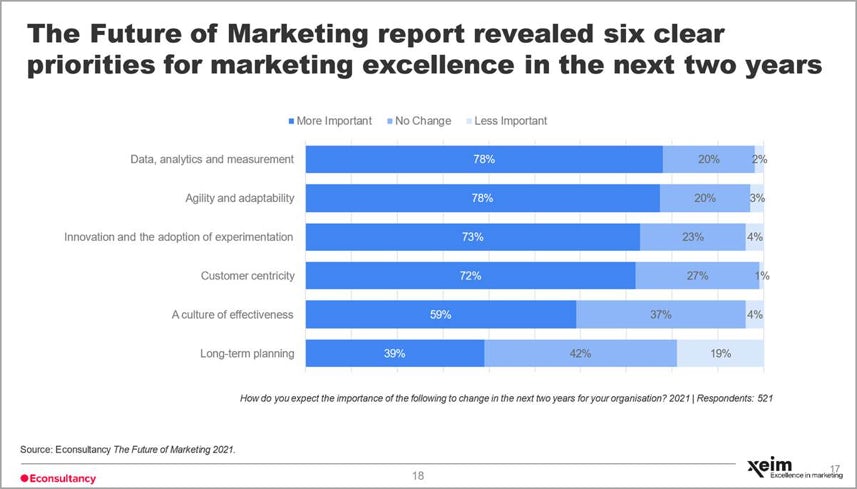As part of Econsultancy’s annual digital and marketing trends predictions, founder Ashley Friedlein proposed 2022 as the year of the Great Reset. A year where marketers recognise what’s changed for good, what’s here to stay and what needs to transform if brands are to move from good to elite and fully deliver on meeting the needs of the customer.
Three ‘new normals’ were highlighted: hybrid is here to stay, connections will become more direct, and the war for talent will intensify.
While I respect the first two, the greatest challenge for 2022 has already become the war for talent and the overwhelming focus on “The Great Resignation”, with so many people re-evaluating what they want to get from their work.
The war for talent is a new normal
Marketing Week recently published its annual Career and Salary survey, and identified the staggering statistic that twice as many brands are hiring external talent (40.1%) versus growing their own (21.3%) (figure 1).
For an industry that thrives on people, ideas, innovation and agility, defaulting to looking outside the business when good talent may be right in front of you is an unsustainable trend that should concern us all.

As my colleague Stefan Tornquist recently suggested in an article for Econsultancy looking internally for talent has two immediate benefits; firstly training & retaining existing staff means you gain immediate institutional knowledge and established problem-solving networks, and secondly you create a culture of loyalty where people will remain at your company for roughly 40% longer.
We must champion a culture of learning
If we want to win the war on talent in 2022 we need to reset our expectations for where the best talent will come from, and champion a culture of ‘always be learning’ where marketers are armed with best practice tools and training to improve knowledge, skills and mindset to stay one step ahead of the customer. This will not only take pressure off hiring externally it will also address the need for a more digital workforce which every brand and business should have as their number one strategic priority if they want to be more hybrid and enjoy more direct connections with their customers.
Returning to Marketing Week’s survey, five skills gaps exist in marketing departments today, and notably all five are digital marketing skills gaps – data and analytics (33%), content and copywriting (18%), performance marketing (17%), social media (16%), and ecommerce (15%).

Indeed, Econsultancy’s own Future of Marketing report found that digital transformation is at the heart of marketing transformation, concluding that brands need to adapt or fail, and must invest in skills, structures and people because it is the “people who will deliver against the opportunities of the next two years”.
Empowering employees
So what are the skills you need to invest in? My own take is you must go broader than the technical disciplines identified as lacking in the Marketing Week Career and Salary survey. Mindset should be considered in addition to knowledge and skillset.

As brands and businesses reset for 2022, so marketers need to reset the paradigm of what learning really is and prepare to learn their way out of the pandemic. Econsultancy’s research (figure 3) has set out clear priorities in pursuit of marketing excellence and whilst – in data & analytics – there is a crossover with the skills gaps identified by Marketing Week, softer skills are in evidence, too, such as agility & adaptability, innovation & experimentation, and customer centricity.
True growth in marketing, perhaps even a Great Retention, will only come when leaders prioritise learning and empower their people.

Comments